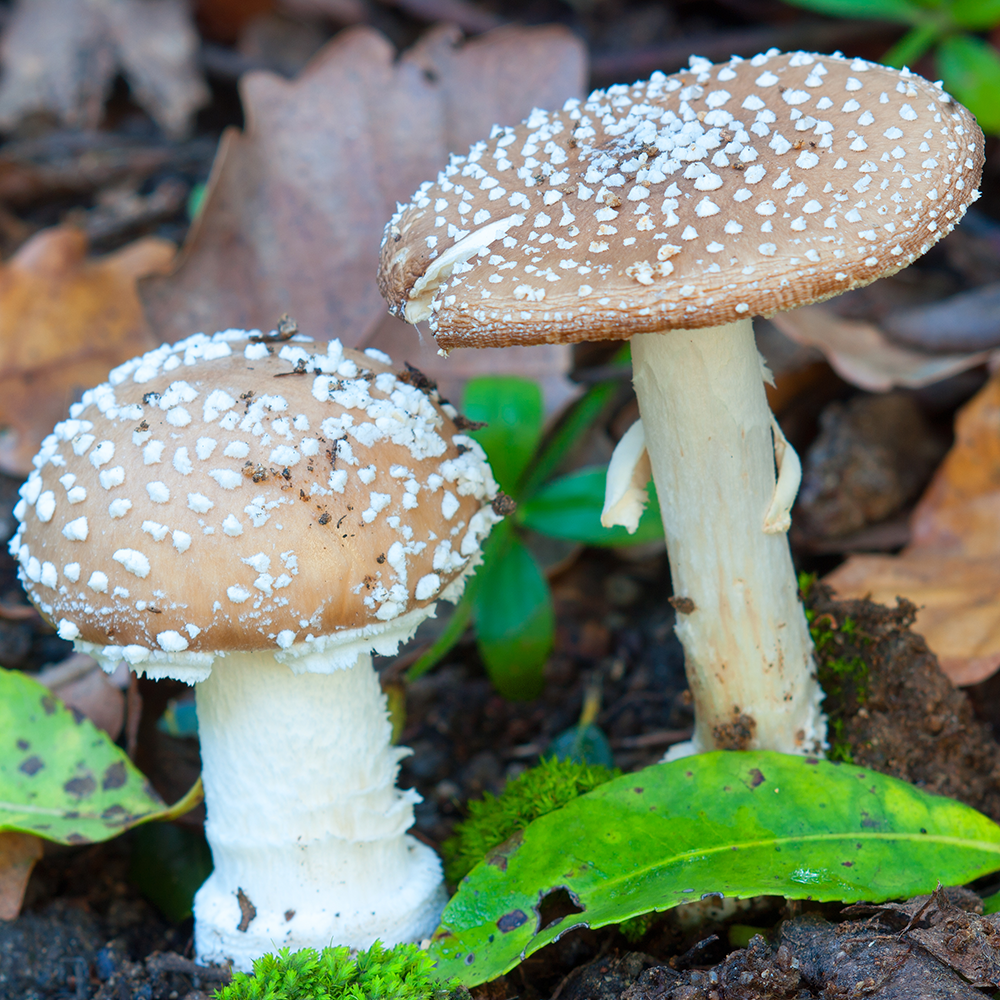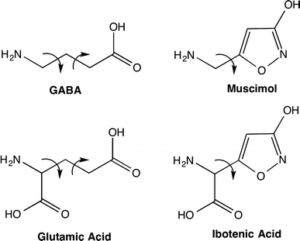THANK YOU!
We sincerely appreciate your generous donation to Entheology Project Inc. As a 508(c)(1)(a) non-profit religious organization, your donation is tax deductible. You will receive an email confirmation for your records, which can be used for tax purposes. Your support helps us continue our mission and make a meaningful impact!
Billing Information
Your credit card will be billed under "Entheology Project Inc." with the description "Donation." If you have any questions or need further assistance, please do not hesitate to contact us. Thank you once again for your support!
Best Regards,
EP Support
info@entheo.info
Looks like there was a problem processing donation.
The Power of GABA and Amanita Mushrooms in Shaping Depression, Sleep, Mood and Anxiety
By EP Admin

In this illuminating exploration into the shifting sands of mental health research, the focus moves away from serotonin to the emerging importance of Gamma-aminobutyric acid (GABA) and muscimol 1. The article delves into how these molecules regulate mood, sleep, and anxiety, thereby challenging existing paradigms 2-3. From discussing natural ways to enhance GABA’s effects to investigating the untapped potential of muscimol, this comprehensive guide stands at the cusp of a transformative shift in mental health understanding 4-5. The article advocates for a cautious, evidence-based approach, acknowledging that these are early yet promising days in neuroscience.
The Role of GABA and Its Importance

There’s a growing consensus that GABA may be as important as serotonin in understanding conditions like depression. GABA serves as the brain’s calming agent, and imbalances can lead to a range of neurological issues:
- Anxiety Disorders: Associated with GABA imbalances 8.
- Sleep Disturbances: GABA is key in sleep regulation 9.
- Mood Disorders: Fluctuations in GABA levels can affect mood 10.
- Cognitive Impairment: GABA influences cognitive functions like memory 11.
- Pain Perception: GABA modulates pain sensitivity 12.
GABA’s role is complex, and it’s just one piece of a larger puzzle.
Natural Ways to Enhance GABA
GABA is found in foods like tomatoes and white tea and can be boosted through various strategies:
- Meditation and Mindfulness: Increases GABA levels 4.
- Exercise: Activities like yoga may enhance GABA 3.
- Supplements: Substances like L-theanine can support GABA 5.
- Herbal Remedies: Traditional herbs may boost GABA 15.
- Stress Management: Methods to handle stress can aid GABA 6.
- Sleep Hygiene: Proper sleep supports GABA 7.
Muscimol: The Newcomer on the Block

Muscimol, a derivative of Amanita pantherina mushrooms, is garnering attention for:
- Alcohol Alternatives: Due to its GABA agonist properties 8.
- Anxiety Management: Shows promise for anxiety relief 9.
- Potential Antidepressant: Interacts with the GABA system 10.
- Neuroprotection: Promotes brain health 11.
Benefits of Muscimol Over Alcohol
- Liver Health: One of the most significant advantages is the reduced strain on the liver, as muscimol doesn’t have the toxic effects commonly associated with alcohol.
- Cognitive Function: Unlike alcohol, which can impair cognitive abilities and decision-making, muscimol has shown promise in potentially enhancing certain cognitive functions.
- Caloric Intake: Alcohol is notoriously high in empty calories, contributing to weight gain. Muscimol has no such effect, making it a better choice for those conscious of their weight.
- Reduced Risk of Addiction: While further research is needed, early indications suggest that muscimol may have a lower potential for abuse and addiction compared to alcohol.
- Social Ease: An intriguing benefit of muscimol is its potential to facilitate easier social interactions, without the negative repercussions often associated with alcohol, such as aggression or impaired judgment.
Precautions and Future Research
It’s worth noting that while muscimol presents an exciting alternative to alcohol, it is a potent compound that requires responsible use and further study. The long-term effects are not yet fully understood, and it’s advisable to consult healthcare professionals before making any changes to your lifestyle or treatment plan.
By exploring healthier alternatives like muscimol, we may be taking a significant step toward a future where socializing and relaxation can be achieved without compromising our long-term health.
References and Sources
- Frontiers in Neuroscience 2020; 14: 923
- Cleveland Clinic, GABA
- Neuropharmacology January 2012; 62(1): 42-53
- Psychotherapy and Psychosomatics September 14, 2017
- Big Think September 25, 2017
- Molecular Psychiatry July 20, 2022 DOI: 10.1038/s41380-022-01661-0
- Haidut.me August 1, 2023
- WSJ July 28, 2023
- ZeroHedge July 31, 2023
- http://haidut.me/?p=2302
- krediet-et-al-ijnp-2020.pdf, p. 13, pos. 298
- Molecular Psychiatry July 20, 2022 DOI: 10.1038/s41380-022-01661-0
- WSJ July 28, 2023
- ZeroHedge July 31, 2023
- The BMJ 20155; 350: h2435



 Your payment is protected
Your payment is protected